
A General Election is a rare chance for the nation to think big, and maybe consider a change in direction. But major policy agendas also have impacts on the smaller scale, and affect specific sectors in ways we may not always consider. So what might the various party promises mean for hillwalkers and climbers in particular? Grouped under broad topics, we have cherry picked sections from the party manifestos that seem most relevant to our general outdoor remit. We're also looking at what various campaign groups and NGOs say they want out if it.
With an outdoor hat on, it has to be said the party offerings across the board are not greatly inspiring. Perhaps in the following you'll find something that resonates for you? We did say perhaps.
Access - slim pickings
While campaigns such as Right to Roam reflect a growing groundswell of opinion that access to the countryside and green spaces needs to be improved in England and Wales, talk of this at the General Election seems muted at best compared with 2019.
In the interim, Labour have quietly shelved right to roam proposals, and their manifesto contains scant reference to access or outdoor recreation, either as a means to a healthier population or as a good end in itself. It may be reasonably hoped that Labour in Government will be more amenable than the access-sceptic Conservatives, but with the party's priorities currently lasered-in on dry, technocratic economics more than quality of life and aspiration in a broader sense, signs of any big steps to improve public access to the countryside are not obvious.
With one or two exceptions few parties are saying anything much on access, suggesting it is not seen as an election issue. If that disappoints you, ask your candidates why.
What the parties are saying:
Liberal Democrats
[We will] ensure everyone has access to a healthy natural environment, regardless of where they live, by:
Significantly increasing the amount of accessible green space, including protecting up to a million acres, completing the coastal path, exploring a 'right to roam' for waterways and creating a new designation of National Nature Parks.
Passing a new Environmental Rights Act, recognising everyone's human right to a healthy environment and guaranteeing access to environmental justice.
Green Party (England and Wales)
To protect and restore nature, Elected Greens will campaign to:
Extend people's access to green space and waterways close to where they live with a new English Right to Roam Act.
Elected Greens will push for:
Investment of £2.5bn a year in new cycleways and footpaths.
Labour
As part of our plans to improve responsible access to nature, Labour will create nine new National River Walks, one in each region of England, and establish three new National Forests in England, whilst planting millions of trees and creating new woodlands.
Conservatives
"[We will] continue to support programmes that encourage disadvantaged children and young people to access green spaces. Deliver our commitments on National Trails including the Coast to Coast Path and the King Charles III England Coast Path. Continue to work with landowners, charities and others to open up more 'access to nature' routes. We will not impose a universal Right to Roam."
What campaigners and NGOs are saying
Right to Roam
Guy Shrubsole from the Right to Roam campaign, said: "When Labour was last in power in both England and Scotland, it expanded the public's access to nature in both nations – but it chose a more sensible and cost-effective approach in Scotland. Not only do Scots enjoy a far better system of access rights than we do in England, it was also cheaper to implement.
"Rather than spend millions of pounds on a piecemeal extension of the Crow Act, the next government should learn from Scotland's experience and legislate for a right of responsible access to the majority of England's countryside. The money saved can be spent instead on public education campaigns and local access rangers to ensure roaming is done responsibly."
BMC
The BMC are calling for specific commitments from a new government to improve access in England and Wales:
Extend public open access rights to more landscapes, such as waterways, woodland, riversides, and downland, connecting people with green spaces closer to where they live.
Repeal the cutoff date for registering historic rights of way.
Amend the 2021 Environment act to require public access targets.
Embed public access options into land management schemes, supporting farmers and landowners to create more opportunities for access to the outdoors.
Establish an access to nature investment strategy to target resources to both rural and urban areas, providing additional funding to extend access opportunities.
Make the 15-minutes-to-nature commitment a legally binding target based on Natural England's Green Infrastructure Standards.
BMC members, and a majority of voters support establishing a responsible right to roam – and it has been estimated that a default of access would be 11 times cheaper than our current restrictive model.
Open Spaces Society
"In these tough times, during a cost-of-living and climate crisis, open spaces and paths for health and well-being, close to people's homes, have never been more important. This is reflected in our manifesto for the next Westminster government" says Kate Ashbrook, general secretary of the Open Spaces Society, Britain's oldest national conservation body.
The, OSS plan for the new government includes:
The new government must treat public access as a priority. An early consultation would signal its good intentions.
Extend responsible freedom to roam under the Countryside and Rights of Way Act 2000 to woodlands, watersides, and water, bringing access close to home.
Government to fund permanent new access, upgraded access for all unpowered and disabled users, and improved access along existing rights of way, where it is needed, under the Environmental Land Management Schemes, and by other means.
Public paths and minor roads to be made fit for use by a simple procedure whereby a member of the public serves notice on the highway authority to require the way to be maintained and kept clear, regardless of who has the responsibility for this.
The guillotine, by which rights on historic, unrecorded paths are extinguished on 1 January 2031, to be repealed.
Conservation and nature restoration - could do better
Our rivers are full of crap and our air is polluted. We face a biodiversity crisis every bit as acute as climate change, in a country that is among the most nature-depleted on Earth. In the hills, conservation issues are rife, and directly affect the experience of hillwalkers and climbers - to say nothing of the wider environment. Peatland - our biggest carbon sink - is widely degraded and much of it requires restoration to improve biodiversity, help mitigate climate change, and improve flood resilience downstream. Moorland burning for grouse management is an enormous ongoing issue. Efforts to restore native woodland are piecemeal, and hampered by overgrazing (of deer in Highland Scotland, by sheep elsewhere).
What do our politicians propose to do about it all? Not a huge amount, in most cases.
What the parties are saying:
Plaid Cymru
The climate and nature emergencies must be tackled together. We would ensure that planning projects have to have regard to the two emergencies, to avoid situations like wind farms being built on landscapes that provide habitats for endangered species.
Labour
Labour will expand nature-rich habitats such as wetlands, peat bogs and forests so families can explore and wildlife can thrive, including on public land.
We will introduce a land-use framework and make environment land management schemes work for farmers and nature.
Liberal Democrats
We will:
Ensure that nature-based solutions form a critical part of our strategy to tackle climate change by:
Restoring our peatlands as a carbon store, and banning the use of horticultural peat and the routine burning of heather on peatlands.
Protecting and enhancing our temperate rainforest.
Set meaningful and binding targets to stop the decline of our natural environment and 'double nature' by 2050: doubling the size of the Protected Area Network, doubling the area of most important wildlife habitats, doubling the abundance of species and doubling woodland cover by 2050.
Plant at least 60 million trees a year, helping to restore woodland habitats, increase the use of sustainable wood in construction, and reach net zero.
Strengthen the Office for Environmental Protection and provide more funding to the Environment Agency and Natural England to help protect our environment and enforce environmental laws.
Support farmers properly in restoring woodland, peatland and waterways, creating new natural flood protections and managing land to encourage species recovery and carbon storage, while producing food for the table.
[We will] make planning work for our natural environment and ensure that developers pay their fair share by:
Ensuring new developments result in significant net gain for biodiversity, with up to a 100% net gain for large developments.
Empowering Local Nature Recovery Strategies to identify a new Wild Belt for nature's recovery.
Conservatives
Conservatives will always seek to preserve and enhance the rural way of life. We will make no changes to the Hunting Act. Further, public arms-length bodies must be responsive to those they serve. Rural communities are clear that improvements must be made to the ways in which these bodies consult and make decisions, especially from Natural England and the Environment Agency. We will improve their accountability and give them clearer objectives to focus on. They must take balanced decisions and factor in the impact on the rural economy.
We are sticking to our ambitious plan to plant more trees. We will deliver our tree planting and peatland commitments through our Nature for Climate funding, and continuing our work to unlock private investment.
Green Party (England and Wales)
To protect and restore nature, Elected Greens will campaign to:
Introduce a new Rights of Nature Act, giving rights to nature itself.
End the scandal of sewage pouring into our rivers and seas by taking the water companies back into public ownership.
Set aside 30% of our land and seas by 2030 in which nature will receive the highest priority and protection.
Financial support for farmers to be almost tripled to support their transition to nature-friendly farming.
SNP
Scotland has over two thirds of the UK's peatland, and currently plants over 60% of trees in the UK, yet funds restoration and planting within our budget, with no help from the UK Government. Westminster must ensure fair funding flows to devolved nations to enable our, and their, climate ambition given that for the whole of the UK to reach net zero by 2050, Scotland must do so by 2045.
Reform UK
Scrap Climate-Related Farming Subsidies. Productive land must be farmed, not be used for solar farms or rewilding. Replace current subsidies with direct payments. Stop Natural England from taking action that damages farmers.
Protect Country Sports. These increase investment and help conservation of our environment. They boost rural jobs, communities and local economies.
Scottish Greens
The Scottish Greens would:
Deliver adequate capital investment across the UK to accelerate the restoration of peatlands and expansion of native forest, in line with our climate targets.
Protect funding to support farmers developing regenerative agricultural practices, which help restore nature, make room for wildlife, and lock up carbon in our soils. Support progress in implementing the Human Right to a Healthy Environment, as declared by the UN General Assembly in July 2022.
What campaigners and NGOs are saying:
Woodland Trust
On 4 July, thousands of candidates will stand in the General Election hoping to represent you.
Your elected MP plays a crucial role in decisions about creating and managing woods, trees and other green spaces, from woodland creation targets to tree protection efforts. The decisions they make will shape the landscape of our natural environment and impact the wellbeing of current and future generations, where you live and across the country.
This is a huge opportunity to encourage candidates to see the value of trees in our communities, to tackle the nature and climate crises and create a brighter, healthier future for people and wildlife. Our combined voices have the power to make change happen.
Putting woods and trees high on the political agenda is crucial. Urge candidates to recognise the value of woods and trees where you live. Ask them to champion:
funding and support to help local authorities plant trees where they're needed most so the benefits of increased tree cover can be felt by everyone.
support for land managers to plant and manage native woodland.
new forestry legislation to protect and improve the public forest estate for the long term benefit of people, wildlife and climate.
new laws to better protect our most important ancient trees and ancient woods.
a new Trees Action Plan for England which sets out the funding and actions needed to deliver for people, nature and climate.

Renewable energy projects - coming to a hill near you soon?
The transition to Net Zero means industrialisation in the countryside, as vast new energy projects come on stream and the electricity grid is expanded and upgraded to bring the power from windy hills to distant urban consumers (to say nothing of power-voracious data centres and mushrooming battery storage facilities).
In Mid Wales and Northern Scotland the pace of development is now unprecedented, as regions already huge net exporters of green power are lined up for generating even more, largely - it is often said - for the benefit of people who don't live or visit there. In these areas the impact of power projects on remaining wild land, local environments, and recreational assets is becoming steadily more noticeable, as under-resourced planners are swamped by well-funded industry applications for ever more wind farms, battery storage facilities, power lines and substations in what basically amounts to a market-led free-for-all.
For many years voters in England have been shielded from the immediate impact of new wind farms by a Conservative administration that enacted a de-facto ban on onshore development by allowing a local veto (and who wants to live under one?). If Labour forms the next UK government, expect a 'streamlining' of the planning rules for England to bring it more in line with the rest of Britain, aided by the establishment of an investment vehicle designed to facilitate energy projects. Love them, loathe them, or sitting on the fence, this is likely to mean a lot more wind farms - and the current generation of onshore turbines are 200m high - affecting English hills, crags and countryside; and with every wind farm comes new power line infrastructure, and these days significant battery storage sites too. Impact wise, it soon begins to add up.
Will England do its share of wind powered heavy lifting in time to spare at least some of the Cambrian Mountains and the East Highlands from blanket mega-development? Are there reasonable grounds to reassess energy and transmission policy, and the role of local democracy? If the bulk of new capacity is to be offshore, what's the point of inviting a rural backlash by building onshore wind farms with a big local impact but a comparatively small contribution to our energy needs? Are there upper limits to how much of Britain gets developed for energy, or any overall vision of appropriate zoning? Few parties appear to have a coherent long-term energy strategy that addresses such questions.
The next Parliament will inevitably feature a lot of trade-offs and debates, as interest groups, multinational energy companies, conservationists of various stripes, and communities in the firing line all seek to be heard. An overbearing emphasis on growth, a relaxed attitude to corporate power, and a tight climate timeframe, may not bode well for anyone seeking a nuanced and considered approach to energy development.

What the parties are saying:
Conservatives
We will ensure democratic consent for onshore wind, striking the right balance between energy security and the views of their local communities. Our updated National Planning Policy Framework seeks to ensure local areas that host onshore wind directly benefit, including potentially through energy bill discounts.
Recognising technological developments over the last decade, we will undertake a rapid review into the advantages of alternative network technologies, compared to overhead pylons. The review will consider moving to a presumption in favour of undergrounding where cost competitive.
Liberal Democrats
[We will] invest in renewable power so that 90% of the UK's electricity is generated from renewables by 2030.
Removing the Conservatives' unnecessary restrictions on new solar and wind power.
[We will] establish national and local citizens' assemblies to give people real involvement in the decisions needed to tackle climate change.
[We will] support the expansion of community and decentralised energy
Empowering local authorities to develop local renewable electricity generation and storage strategies.
Reforming the energy network to permit local energy grids.
Guaranteeing that community benefit funds receive a fair share of the wealth generated by local renewables infrastructure.
[We will] introduce a strategic Land and Sea Use Framework to effectively balance competing demands.
Labour
With a serious industrial strategy and a genuine partnership between the public and private sectors, we can make Britain a clean energy superpower.
The current planning regime acts as a major brake on economic growth. Labour will make the changes we need to forge ahead with new roads, railways, reservoirs, and other nationally significant infrastructure. We will set out new national policy statements, make major projects faster and cheaper by slashing red tape, and build support for developments by ensuring communities directly benefit.
Local power generation is an essential part of the energy mix and reduces pressures on the transmission grid. Labour will deploy more distributed production capacity through our Local Power Plan. Great British Energy will partner with energy companies, local authorities, and co-operatives to install thousands of clean power projects, through a combination of onshore wind, solar, and hydropower projects. We will invite communities to come forward with projects, and work with local leaders and devolved governments to ensure local people benefit directly from this energy production.
Plaid Cymru
We believe that the beauty of Wales's natural landscape should be preserved. This means that large scale industrial energy generation developments should take this into account. Large scale pylon developments or solar scale developments should be considered in the context of their impact, and alternative methods for linking renewable energy to the national grid should be implemented, e.g. through the undergrounding of cables.
We will insist on alternative methods to avoid the unnecessary destruction of our beautiful countryside for large industrial scale solar farms and pylons. Communities should genuinely benefit from any developments in their area, rather than receive a pittance for extraction and use of our natural resources.
We believe that Wales should have full control over energy powers, without any upper limit or conditions set by the UK Government. It makes no sense for there to be a specific limit, currently 350MW of generation, meaning that there are two planning regimes in place and that major energy developments can be given consent by Westminster without the consent of people in Wales.
We would push for changes to planning policies to give local communities a greater voice in determining what developments happen in their locality, and ensure that local voices are involved earlier in the planning stages of projects, so that local people have more say and ownership of these projects.
SNP
Scotland has won the energy lottery not once but twice – but instead of benefiting Scotland's interests, our energy resources have bankrolled successive UK Governments. Scotland as a whole should see far more of that benefit, but we also believe the local communities who house the infrastructure – like pylons and wind farms – should get a much greater degree of benefit.
Devolution allows us very few mechanisms via the planning system to deliver increases in community benefit. Therefore, it is vital the UK Government devolves the powers to us, so that wherever there is a significant investment, we can ensure our communities feel the benefit.
With full powers, we could make changes to the electricity grid system that currently holds back the development of renewable energy in Scotland, including reducing fees for Scottish producers to connect.
Until we have those powers, it is crucial that the UK Government steps up.
The UK Government must invest at least £28bn a year in the green economy to deliver a step change in public and private investment in net zero and major investment in the domestic supply chain. As part of this investment, the UK Government should seek an equity stake in future energy projects. The return on this investment for the taxpayer will be used to directly benefit the Scottish people by protecting jobs, growing the green economy and lowering energy bills.
Reform UK
Ditching Net Zero could save the public sector over £30 billion per year for the next 25 years.
Scrap Annual £10 Billion of Renewable Energy Subsidies. Achieve this through equivalent taxes on them. Renewables are not cheaper. Our bills have increased dramatically in line with the huge increase in renewables capacity over the last 15 years.
Start fast-track licences of North Sea gas and oil. Grant shale gas licences on test sites for 2 years. Enable major production when safety is proven, with local compensation schemes. Fast-track clean nuclear energy with new Small Modular Reactors, built in Britain. Increase and incentivise ethical UK lithium mining for electric batteries, combined cycle gas turbines, clean synthetic fuel, tidal power and explore clean coal mining.
Green Party (England and Wales)
Elected Greens will push for:
Wind to provide around 70% of the UK's electricity by 2030.
Delivery of 80GW of offshore wind, 53 GW of onshore wind, and 100 GW of solar by 2035.
Investment in energy storage capacity and more efficient electricity distribution.
Communities to own their own energy sources, ensuring they can use any profit from selling excess energy to reduce their bills or benefit their communities.
A share of community ownership in local sustainable energy infrastructure such as wind farms.
Scottish Greens
100% renewables will require significant upgrades to the national grid.
Action is also needed to correct unfair grid connection rules that discriminate against the Scottish renewable energy producers, who pay much higher transmission costs to connect to the grid than similar projects in other regions of the UK, and to reduce the bills of those in rural communities living closest to large renewables projects.
The National Grid was originally created with the intention of centralising energy generation close to cities and towns with high energy demands. Since privatisation in 1990 it has been operated for the purpose of maximising profit for its multinational owners. Neither of these objectives is fit for purpose when it comes to the 21st century challenge of transitioning to a green electricity grid, where renewable generation is more likely to be found in remote, rural and offshore regions, and where reinvesting profits into grid upgrades in these areas is critical.
The Scottish Greens would return the National Grid to public ownership in full and make achieving net zero its foundational mission. We would also support devolved nations and regions of England to develop plans for localising and democratising energy generation. This would bring together a network of local, national and international energy grids which support local and micro-generation with lower costs, and facilitate the export of low carbon energy across Europe.

What campaigners and NGOs are saying:
Communities B4 Power Companies
Big Energy is colonising the Highlands. You don't have to walk very far before you run into its devastating effect on rural Scotland. Mountaineering Scotland claimed in 2016 that over 67% of its members said they would prefer not to see wind turbines. In 2013 it claimed they could be seen from over 42% of the Scottish countryside - up from 20% in 2008 - and hill walkers were looking for places outside Scotland to enjoy because of it.
It's now 2024, and there is far more industrial metal and concrete deposited in our landscapes than ever before. The current onslaught by Big Energy is relentless, with multiple applications a week coming in for super sized wind turbines, battery storage, hydrogen plants, super sized substations, overhead lines, and mega-pylons.
This destruction of rural Scotland is a political hot potato, with no party agreeing to protect it from this colonisation. Scotland produces far more renewable energy than it can use or export to England, and the Highlands produces far beyond what it will ever need.
Communities B4 Power Companies continue to ask our elected representatives: 'Do you believe it is okay for Big Energy to colonise rural Scotland so it can profit from exporting renewable energy?'
The people who live here and her visitors do not think so.
Action to Protect Rural Scotland
We need to generate more renewable electricity, but in a carefully planned way, so we do not unnecessarily sacrifice beautiful scenery or valuable habitats for the sake of more and more generating capacity.
Scotland's rural landscapes... have evolved over thousands of years through the interaction of geology and climate with plants, animals and people. This dynamic process has created many outstanding and highly-valued landscapes, now some of our greatest environmental, social and economic assets. Scotland's rural landscapes are vitally important to supporting the cultural heritage and identity of Scotland, our socio-economic well-being and our mental and physical health.
The increasing pace of change and the form of some developments can often threaten the quality of these landscapes. However, some sustainable development can enhance the landscape as well as strengthen economic and social life. The success of our largest industry, tourism, largely depends on the health of our natural and cultural landscapes to support jobs in local communities.

Phone masts in the hills - taxpayer-funded vandalism goes unremarked
Across upland Scotland, planning authorities are facing a flood of applications to build new 4G masts in the country's wildest and most scenic places. Hundreds of phone masts are in prospect, speculative applications by a plethora of companies. New masts need vehicle access tracks and backup diesel generators. Most are located in uninhabited glens, serving no apparent local need and contributing to the degradation of the wildness that most hill-goers and climbers value so highly. Costing taxpayers half a billion pounds, the Shared Rural Network rollout is a state-sponsored project run from Whitehall but chiefly benefitting companies rather than the public. With a clumsy target of 95% landmass coverage that acts as a sledgehammer to crack a nut, it appears to be taking place largely below the political radar, and gets no attention in this year's manifestos.
No central source of official information on all the proposed phone masts is available - as with new wind farms, we have a market led free-for-all. The best place to find out more is actually a group campaigning to reverse the policy. If you are concerned by the impact of the SRN, you can find out more and help campaign against it by joining the Shared Rural Network Mast Action Group Facebook page.
What the parties are saying:
Nothing.
What campaigners and NGOs are saying:
Mountaineering Scotland
Most hill-goers are now aware of this rash of development proposals in remote areas, serving no local residences or businesses. The commercially unviable Total Not-Spots rolled out through millions of public funding. We continue to oppose masts that are proposed for wild places that have mountaineering interest and no local community requirements.
Wouldn't it be more sensible to allocate the diminishing public funding to where they are actually needed by rural communities?
National Parks - quietly neglected
These are tight times for National Parks across the UK, and budgets will continue to be squeezed whoever is in power.
Recent moves to establish at least one new National Park in Scotland have met a mixed fate, with some nominating areas pulling out of the bidding process citing a lack of Scottish Government support for volunteer teams, a too-tight timeframe, inadequate public consultation, a co-ordinated NFU Scotland campaign against proposals, and even personal hostility from landowners and farmers. Elsewhere in Scotland, bids continue to be developed, and the SNP administration remain committed to the outcome despite the collapse of power sharing with the Scottish Greens who championed the policy.
What the parties are saying:
National Parks are not getting much of a look-in at this General Election.
Conservatives
We will designate our 11th National Park [in England - Ed] alongside investing to improve existing National Parks and protected landscapes.
What campaigners and NGOs are saying:
Campaign for National Parks
For too long our National Parks have suffered budget cuts, pollution, restricted access and so much more; now is the time for change. That's why we're calling on the Westminster parties to seize the initiative at the General Election and commit to an ambitious programme of action to transform our National Parks for the benefit of people, nature and the planet.
Back in July 2023, we launched our own manifesto "Wilder National Parks For All" to set out the things we want all parties to deliver and have since been discussing with parliamentarians and communities. Earlier this year, to mark the 75th anniversary of National Parks, in partnership with the English National Park Societies, we wrote to party leaders urging them to get behind our manifesto and Save our National Parks. Our Health Check report, published in April, set out the evidence showing the poor health of nature and made recommendations for the next Government to drive recovery. Over this election period, we will be asking all parliamentary candidates, and party leaders, to get behind our Save National Parks manifesto.
Wilder National Parks for All – the next UK Government must:
Secure rapid nature recovery
End water pollution
Enforce the law, ban moorland burning and combat wildlife crime
Open up National Parks to all, extending freedom to roam
A new deal for National Parks, doubling investment in the parks, farming and jobs
Safeguard natural beauty and support thriving communities
Create new Nationals Parks for nature on land and sea
As John Dower said about National Parks in 1945: "There can be few national purposes which, at so modest a cost, offer so large a prospect of health-giving happiness for the people".
This remains true today: despite covering 10% land and a significant proportion of the UK's most important nature sites, National Parks are granted less than 1% of the Defra budget – and a tiny fraction of the overall Government spend. In the 75th anniversary year, we're hoping all party leaders remember and recommit to the founding vision, and set out plans to secure nature-rich National Parks for Everyone.






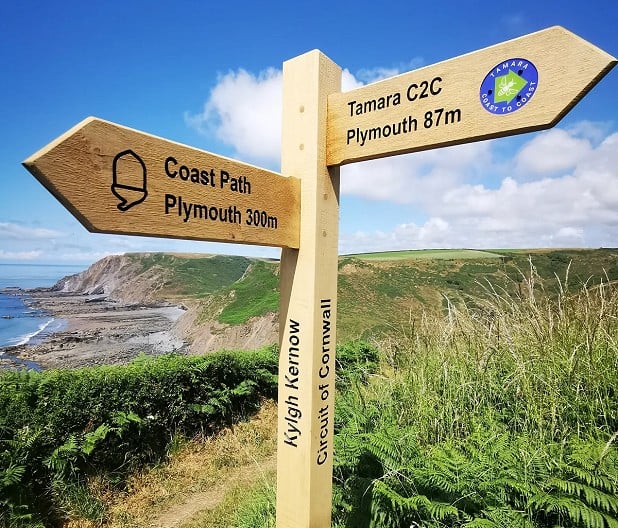










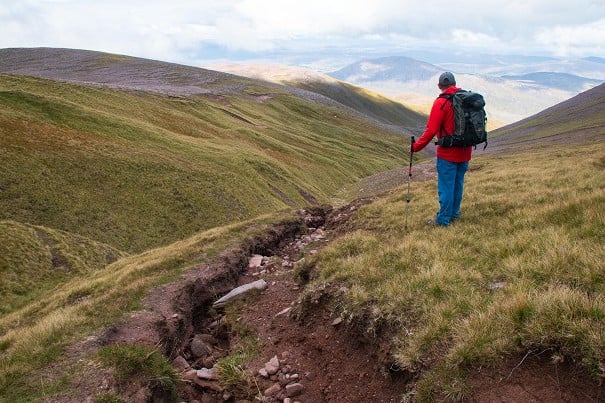
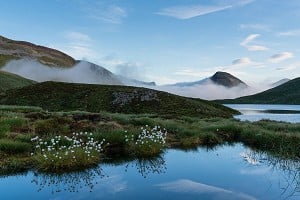







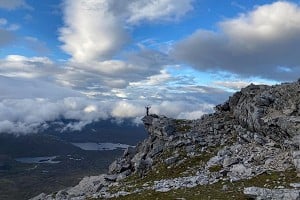

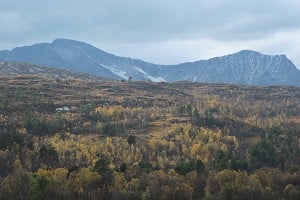
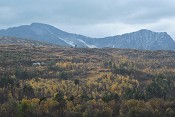
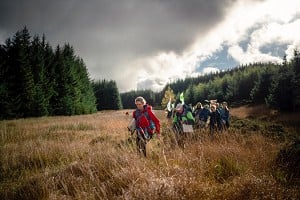













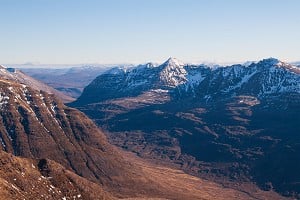

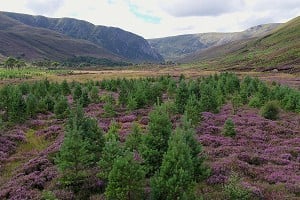
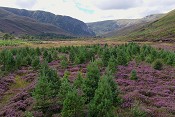


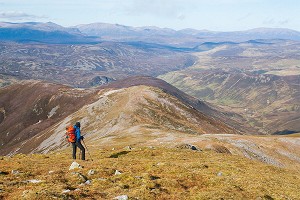

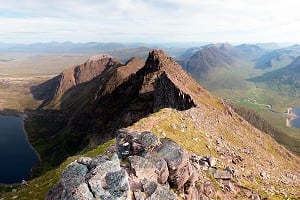

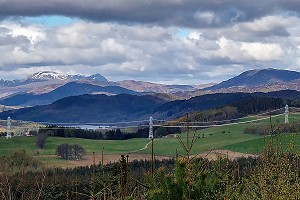
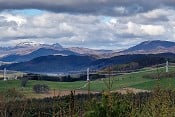


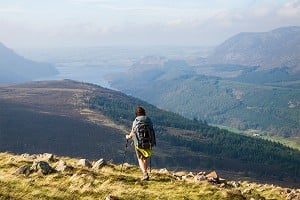

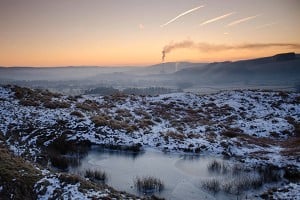



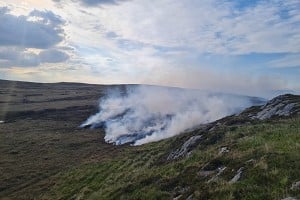
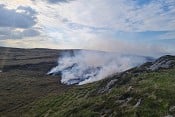
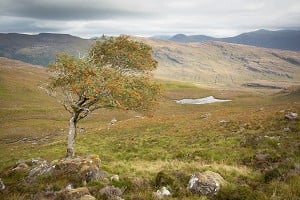
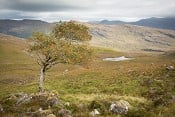
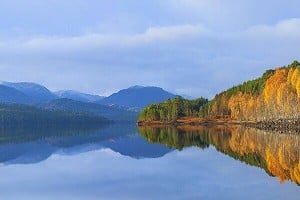

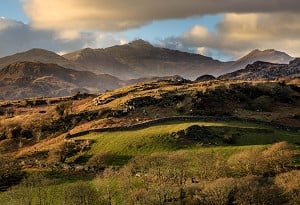
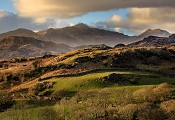
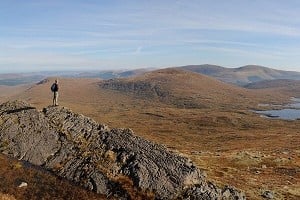
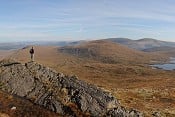
Comments
Green Party = Green Party of England & Wales I assume, what about the Scottish Greens ?
As a Scottish voter and generally quite politically aware, I had no idea the Greens were separate entities north and south of the border (independence-related?). The fact I didn't have a clue suggests their messaging may not be cutting through to the electorate at large.
Adding them might arguably be tokenistic since they're both a very small party (now-defunct power sharing perhaps a high water mark in terms of likely influence in the near term?) and geographically self-limiting, hence making themselves close to irrelevant in a Westminster sense. But I'll give their manifesto a browse. If we can include 'Reform' UK then anything is fair game.
Well done for doing that, a necessary but I suspect tedious job.
It's obvious that some words and phrases carry different meanings. "Responsible" may mean very different things to different people when placed in front of "right of access", just as I suspect that "the country way of life" means something very different to conservative landowners than it might to others reading the Tory manifesto.
I think it's fair to say that in the prevailing circumstances, access to and the betterment of the natural environment is no one's priority beyond stopping shit flowing into watercourses. Whomever represents your constituency on Friday week will need badgering about this. Get your stripy noses on and get busy!
T.
Thanks! Yes it is one very full Tuesday of my life I shall not get back.
You're right of course, the country is in such a state that fixing the basics is arguably more essential than waving around inspiring big ideas. Still, I can't help wishing we had a bit more ambition for access, National Parks, and habitat restoration. And a lot more long-term and honest thinking about the energy system.
Great piece of work, Dan!